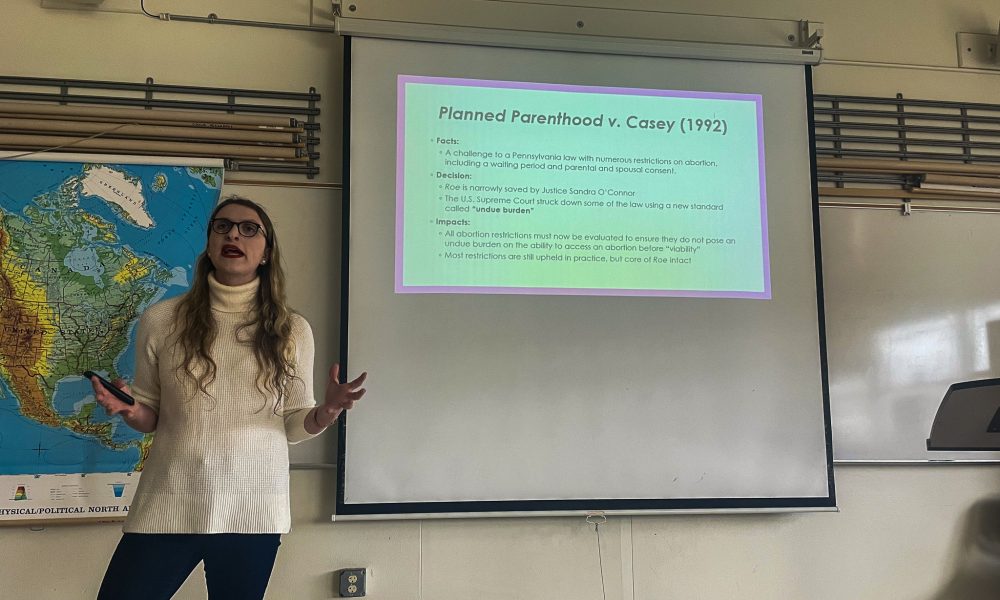The Associated Students Inc. Judicial Branch held a seminar at Long Beach State on women’s rights on Tuesday to discuss the overturning of Roe v. Wade and the state of reproductive rights in the country.
“We just decided to put this together because it was Women’s History Month. We wanted to kind of touch on modern contemporary issues, especially with the overturning in the summer,” said Erin Larios, associate justice of the ASI Judicial Branch.
The event taught students about the history of reproductive rights and the current state of the countries’ fight over them.
With no national abortion protection, a patchwork system has been created nationwide with different laws in different states.
California passed Proposition One, codifying the right to abortion into the state Constitution.
According to the Center for Reproductive Rights, 12 states have completely banned abortion, and several others have restricted it.
Even in states where abortion is protected, access could be in jeopardy. A case in Texas could revoke Food and Administration approval of a widely used abortion pill.
“It just goes to show that they will go it any lengths to take away reproductive autonomy and women’s right to choose what they want to do with their body,” said Alexandria Gonzalez, a public relations major at CSULB.
The event was led by political science professor Kathryn Perkins who discussed, among other things, the history of women’s rights in America, the legal doctrine surrounding reproductive rights and the overall implications of the Supreme Court’s decision to overturn Roe.
Perkins’ presentation was centered around the legal doctrine of substantive due process.
“Substantive due process is the idea that you also have enumerated or implied rights,” Perkins said. “This is referring to the idea that there are lots of things in the Bill of Rights that are implied and not written down.”
According to Perkins, all the major Supreme Court cases that dealt with abortion and reproductive rights didn’t establish a right to abortion, they established a right to privacy.
“Many people believe that Roe said that the Constitution has a right to an abortion,” Perkins said. “No, it said that the Constitution gives individuals the right to privacy and that within that right to privacy is the right in some contexts to choose to have an abortion.”
The division we see on reproductive rights splits down political party lines. According to Pew Research, in 2022, 80% of registered Democrats think abortion should be legal in all or most cases, compared to only 38% of Republicans.
CSULB’s Student Health Center has different services for reproductive health, including but not limited to PAP testing, STI testing, breast examinations and access to common types of birth control.
The Family Planning, Access, Care, and Treatment program (Family PACT) provides free family planning and services for low-income students who do not have health insurance.
Students interested in seeking these services should visit the Student Health Center at 6003 Beach Drive.




